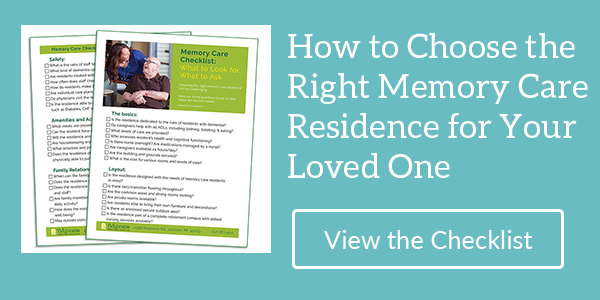
The first time you notice a change in your or a loved one’s behavior — perhaps an inability to recall recent conversations or find the right words — you will likely chalk it up to getting older, being tired, or general confusion. But as time goes on and you continue to see or experience such behaviors, it may be time to call your physician and find out what’s going on; you or someone dear to you could be experiencing dementia.
The case for early dementia diagnosis is strong. While denial may seem like a nice, safe place, the reality is that early diagnosis can help minimize the impact of dementia and, in some cases, eliminate the symptoms altogether.
Early Dementia Diagnosis: A Few Points to Consider
- Some medications, diseases, or other conditions can mimic the symptoms of dementia so it’s important that medical professionals rule out all possible causes.
- Generally speaking, the earlier the diagnosis, the better the diagnosis. In the early stages of dementia, people are often still able to converse normally, explain how they feel, describe their symptoms, clearly define when the symptoms began, and provide other important information. This information helps the physician build a solid platform for tracking the condition and creating the best possible treatment plan going forward.
- The earlier dementia treatment begins, the more effective it can be. And, because research in dementia-related diseases (like Alzheimer’s) is ongoing, new treatment options become available often. With dementia, certain treatments may work well for one person and not so well for another. Having more time to find the best treatment can only benefit the patient.
- Early diagnosis allows the patient more time to participate in the treatment process and gain a better understanding of ways they can help themselves. They also have the opportunity to make choices concerning treatment and, if appropriate, take part in clinical trials. Additionally, self-help groups for people with early-stage dementia can help the patient learn how others are improving their quality of life while living with the diagnosis and the prognosis.
- When dementia is diagnosed early, patients have more time to get their lives in order and prepare for the time when they will not have the capacity to make important life decisions. Wills, trusts, short- and long-term care (when necessary), retirement dates, and other essential decisions can be addressed. Once handled, the patient and their family can rest a little easier knowing that everything is in order.
- People diagnosed early with dementia also have more time to decide what they want to spend their time doing. Trips and travel, athletic endeavors, and other goal-related activities can move from the bucket list to the top of the to-do list. Patients can get together with old friends, mend family feuds, or finish projects. In short, the people with dementia can have closure.
- Early diagnosis also gives caregivers, family, and friends more time to learn about dementia. They can find out what to expect and take time to appreciate and enjoy the present with their loved one. They could attend workshops or self-help groups, investigate professional care options in-home and away, and learn ways to make the home safer and more comfortable for the person with dementia.
When dementia strikes, the best plan is to take action. Our guide on memory loss and memory care can help make the decisions easier. Your physician can help you understand the symptoms and treatment options. If you have questions about short- or long-term care for a loved one with dementia, contact Brightside Assisted Living and Memory Care today.

